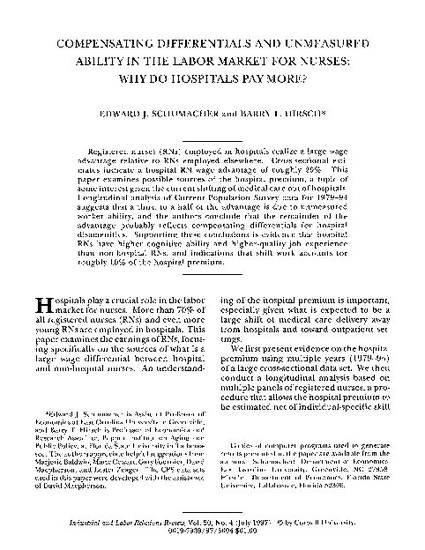
Registered nurses (RNs) employed in hospitals realize a large wage advantage relative to RNs employed elsewhere. Cross-sectional estimates indicate a hospital RN wage advantage of roughly 20%. This paper examines possible sources of the hospital premium, a topic of some interest given the current shifting of medical care out of hospitals. Longitudinal analysis of Current Population Survey data for 1979-94 suggests that a third to a half of the advantage is due to unmeasured worker ability, and the authors conclude that the remainder of the advantage probably reflects compensating differentials for hospital disamenities. Supporting these conclusions is evidence that hospital RNs have higher cognitive ability and higher-quality job experience than non-hospital RNs, and indications that shift work accounts for roughly 10% of the hospital premium.
